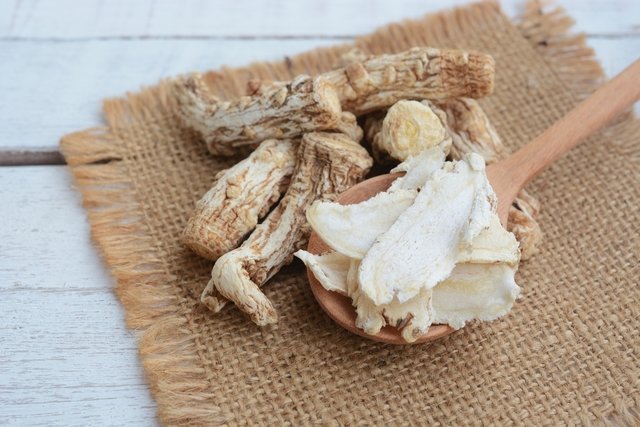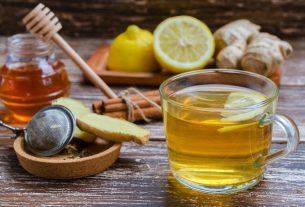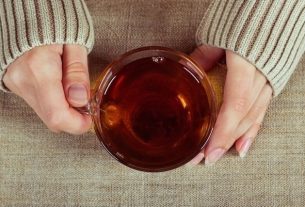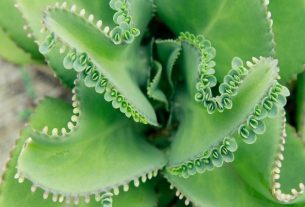Dong quai is the root of Angelica sinensisa medicinal plant rich in Z-ligustilide, a bioactive compound with antispasmodic and analgesic properties that help alleviate situations such as menstrual cramps and headaches.
Also known as Chinese angelica and female ginseng, Dong quai also has a vasodilatory action, improving blood circulation in the female reproductive organs and thus helping to regulate menstruation. Discover other plants that help regulate menstruation.
This plant is usually found in pharmacies and health food stores, and can be used in the form of teas, tinctures or capsules. However, Dong quai is not indicated in some situations, such as pregnancy and breastfeeding, and should therefore only be used under the guidance of a doctor or other healthcare professional specialized in the use of medicinal plants.

What is it for
Due to its anti-inflammatory, antispasmodic, antioxidant and vasodilatory action, Dong quai can be indicated to help treat situations such as:
- Menstrual cramps;
- Irregular menstruation;
- Infertility;
- Headache;
- Fat in the liver;
- Poor circulation;
- Rheumatic pains.
In addition, Dong quai can also be used to help regulate blood glucose levels and alleviate menopausal symptoms. However, more studies are still needed to prove these benefits.
How to use
Dong can be used in dehydrated or powdered form to prepare teas and tinctures.
- Dong quai tea: Boil 3g of Dong quai root in 200ml of water for 10 minutes. Leave to cool, strain and drink up to 3 cups a day with meals;
- Dyeing: Dilute 28 to 56 drops in a little (100ml) of water and take up to 3 times a day with meals.
Furthermore, Dong quai can also be used in the form of capsule supplements, where the dosage varies between 75mg and 500mg and the recommended intake varies according to the objective being treated.
Possible side effects
Excessive consumption of Dong quai can cause diarrhea, headache, sensitivity to light, inflammation and skin sores. Therefore, this plant should only be used under the guidance of a doctor or other healthcare professional specialized in the use of medicinal plants.
Who cannot use
Dong quai should not be used by children or people with chronic diarrhea or bleeding diseases. Likewise, this plant is not recommended for women with excessive menstrual flow, who are pregnant or breastfeeding.
Women who are using contraceptives or taking hormone replacement therapy and people who are using anticoagulant medications should consult a doctor before using Dong quai, as this plant can alter the action of these medications.
Furthermore, it is advised to avoid using Dong quai together with other medicinal plants with anticoagulant effects, such as ginseng, garlic, turmeric, ginger, ginkgo biloba and ginseng.
Bibliography
- XIE, Qingxuan. Z-ligustilide: A review of its pharmacokinetics and pharmacology. Phytotherapy Research. vol.34. 8.ed; 1966-1991, 2020
- HOU, Chunyan et al. Recent progress in the research of Angelica sinensis (Oliv.) Diels polysaccharides: extraction, purifcation, structure and bioactivities. Chemical and Biological Technologies in Agriculture. Vol.8. 13.ed; 1-14, 2021
- EUROPEAN MEDICINES AGENCY. Assessment report on Angelica sinensis (Oliv.) Diels, radix. 2013. Available at: <https://www.ema.europa.eu/en/documents/herbal-report/final-assessment-report-angelica-sinensis-oliv-diels-radix-first-version_en.pdf>. Accessed on October 6, 2022
- MOUNT SINAI. Healthy library: Dong quai. Available at: <https://www.mountsinai.org/health-library/herb/dong-quai>. Accessed on October 6, 2022
- MEDLINEPLUS. Herbs and suplementation: Dong quai. Available at: <https://medlineplus.gov/druginfo/natural/936.html#Dosage>. Accessed on October 6, 2022

Sign up for our newsletter and stay up to date with exclusive news
that can transform your routine!
Warning: Undefined array key "title" in /home/storelat/public_html/wp-content/plugins/link-whisper-premium/templates/frontend/related-posts.php on line 12
Warning: Undefined array key "title_tag" in /home/storelat/public_html/wp-content/plugins/link-whisper-premium/templates/frontend/related-posts.php on line 13



